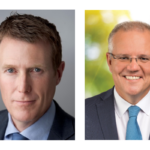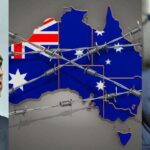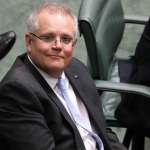A Secret Consolidation of Power: Morrison Trashes Our Democratic System
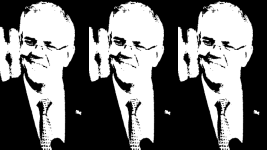
The prime ministership wasn’t enough for Scott Morrison. Indeed, what’s become clear over recent days is he sought to secretly control other key ministries in the background, which gave him the ability to override any decisions the publicly sworn in minister made that didn’t agree with him.
An extract from a book on the government during the pandemic period called Plagued was just published in the Australian, and it revealed that the ex-PM secretly had himself sworn in as a second minister overseeing the health and finance portfolios in March 2020 and to resources in April 2021.
Current prime minister Anthony Albanese has since confirmed that, with Trumpian disregard for the democratic system Morrison had been entrusted to oversee, the last leader of the nation also had himself sworn in as treasurer and home affairs minister in May last year.
On 2GB Radio on Tuesday, Morrison flagged COVID-19 as the reason for his taking on health and finance, however this excuse falls over when taking into account the three ministries he was appointed to on the sly a year later, which meant he took on at least five extra cabinet positions.
The former PM didn’t break the law in creating this “shadow government”, but rather abused a loophole. And it’s thought that if he’d been transparent in his actions, no real issue may have occurred, as its the clandestine nature of his approach that raises questions about his motives.
The shadow cabinet
“This is an extraordinary development, which attacks the very fundamental idea of ministerial responsibility to parliament,” Australian Greens Senator David Shoebridge told Sydney Criminal Lawyers.
“How can a parliament hold a minister to account on key portfolios, such as treasury and health, when Scott Morrison was moonlighting?” he asked.
“How can parliament hold him to account, when they don’t even know that he has this list of additional ministerial rights and responsibilities?”
The secrecy involved in Morrison’s multiple ministerial appointments extended to most of the ministers he was shadowing, except for then health minister Greg Hunt, who was consulted on the move and agreed to go along with it.
Although, then resource minister Keith Pitt was made privy to the arrangement in May 2021, when Morrison reached over his shoulder and overrode his decision to approve Asset Energy’s PEP-11 gas exploration project over concerns it would lead to rising support for teal independents.
This is the only time the then Liberal leader exercised his secret powers that’s known. And it does shed some light on how he sought to act as the final decisionmaker in all five portfolios, in what Shoebridge described as “a secret corruption-prone contrivance”.
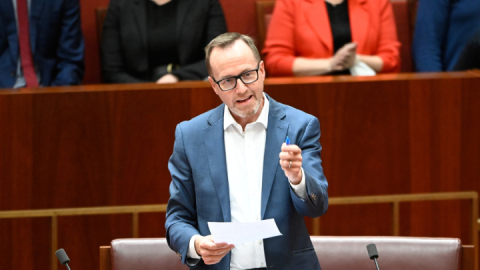
A tinpot despot
The Morrison government marked the last iteration of the Coalition’s close to a decade in power. And it was under the last PM that concerns were repeatedly raised about the government’s brazenness in refusing to even consider the constituency.
“What Morrison has shown is a genuine contempt for democracy,” Shoebridge continued, “a deep arrogance that he and his government could do whatever they like without even having to pretend that they were responsible to the elected representatives in parliament.”
“That is part of a broader authoritarian trend we see in the right of politics.”
Morrison had Australian governor general David Hurley secretly swear him in to the additional ministerial roles and had him stay mum about the matter, while then attorney general Christian Porter was consulted on the arrangement prior to the March 2020 second ministerial appointments.
And in taking these actions Morrison undermined the cabinet and the authority of each minister, which are fundamental to the Westminster system, and he further disregarded the principle of open government, which his administration sort to abuse in other areas as well.
“In many ways, Morrison is an unthinking and unsophisticated example of the kind of ideological attack on democracy that we’ve seen come out of the right-wing in the US,” said the senator, “but unsophisticated or not, it’s still a direct blow to some fundamental underpinnings in our system.”
An attack on democracy
As Albanese put it before the press on Tuesday, Morrison trashed “our democracy” through these “extraordinary and unprecedented” acts, in which he was basically governing “by deception” and “in secret”.
And as the subsequent questions put to the prime minister and the outpouring of reports in the media reveal, there are very real concerns that Morrison’s actions have damaged the nation’s democratic standing, with fears these sorts of clandestine arrangements could happen again.
According to Shoebridge, this scandal has revealed the fragility of the Australian democratic system, as much of its framework “is based upon a set of cultural understandings and norms”, which don’t appear in the Constitution and nor are they legislated in any individual acts of parliament.
“Who would have thought we needed to put in black and white that when the governor general appoints a minister, the public needs to be told?” the Greens justice spokesperson continued.
“The idea that this kind of fundamental part of our democracy needs to be legislated or codified because the right of politics is willing to ignore it if it’s not, shows the nature of the threat.”
The senator further underscored that Morrison was not alone in this “attack on democracy”, as the nation’s first law officer was in on its inception, while a number of other Coalition ministers were aware of what was going on.
No watchdog in sight
Former home affairs minister Karen Andrews has been leading a chorus of people calling on Morrison to resign from parliament in relation to the scandal. However, former prime minister John Howard told the ABC that Morrison should remain in parliament to avoid an expensive byelection.
Morrison appeared before the press on Wednesday afternoon to justify the multiple ministries he had himself secretly appointed to and raised the “extraordinary times” card once more. The current Liberal MP has also resisted the calls for him to resign.
Shoebridge asserted that if the nation “wanted a rolled gold case study on why we needed a federal anticorruption commission” it was before it now, and he hopes that these revelations serve to spur the whole of parliament on to legislating such a body prior to the end of the year.
As for Morrison, the Greens senator outlined that his party is calling on the federal privileges committee to inquiry as to the appropriate action to be taken against the former prime minister and the other ex-cabinet ministers who were a party to the grand deception.
“Appointing the prime minister in five parallel ministerial portfolios, giving him the power to exercise ministerial authority and then never even telling parliament was contemptuous,” Shoebridge concluded.
“The Greens are seeking urgent advice on referring this growing scandal to the privileges committee.”


